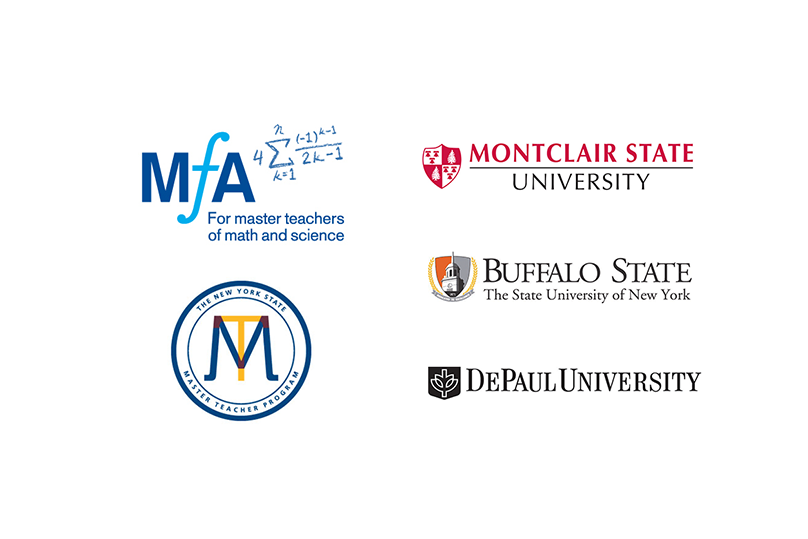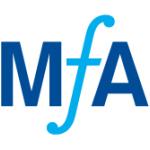
Math for America (MƒA), a nationally recognized STEM nonprofit, announced today that its innovative video library, which features MƒA teachers implementing high-quality mathematics lesson plans in their classrooms, will be the focus of a highly-selective Discovery Research prek-12 (DRK-12) grant from the National Science Foundation. DRK-12 grants are awarded each year to projects that have the potential to transform the education system in radical ways.
The $1.7 million DRK-12 grant was awarded to Montclair State University, the State University of New York Buffalo State, and DePaul University, working in collaboration with MƒA, The New York State Master Teacher Program, and the DePaul STEM Center. The funding will support teacher-leaders in different cities across the country as they implement high-quality lesson plans, create new videos for the MƒA library, and collaboratively investigate them in order to understand how to teach the lessons more effectively. The team at Montclair State University will study what teachers learn and how they share that information with others, to learn how similar initiatives can be scaled nationwide.
“This project gives teachers opportunities to see into one another’s classrooms, which is still far too rare in the U.S. The model works because it trusts teachers to figure out how to implement the lesson plans most effectively.”
- MƒA Chief Operating Officer Michael Driskill
“In this innovative professional development model, teachers use videos to break down complex teaching situations and think about what can be improved,” said Dr. Eileen Murray, assistant professor at Montclair State University and principal investigator for the grant. “It’s similar to how professional athletes use video to review what worked and what didn’t in games.”
The project was selected because it addresses the pressing national need to generate shared, classroom-based knowledge about how to implement freely available, high-quality instructional resources that have been shown to improve student learning outcomes. The video library can be accessed by creating a free account at the Teaching and Learning Exploratory, a video repository created by the University of Michigan to house collections of teaching videos. The lesson plans implemented in the videos are available for free at the Math Assessment Resources Service.
